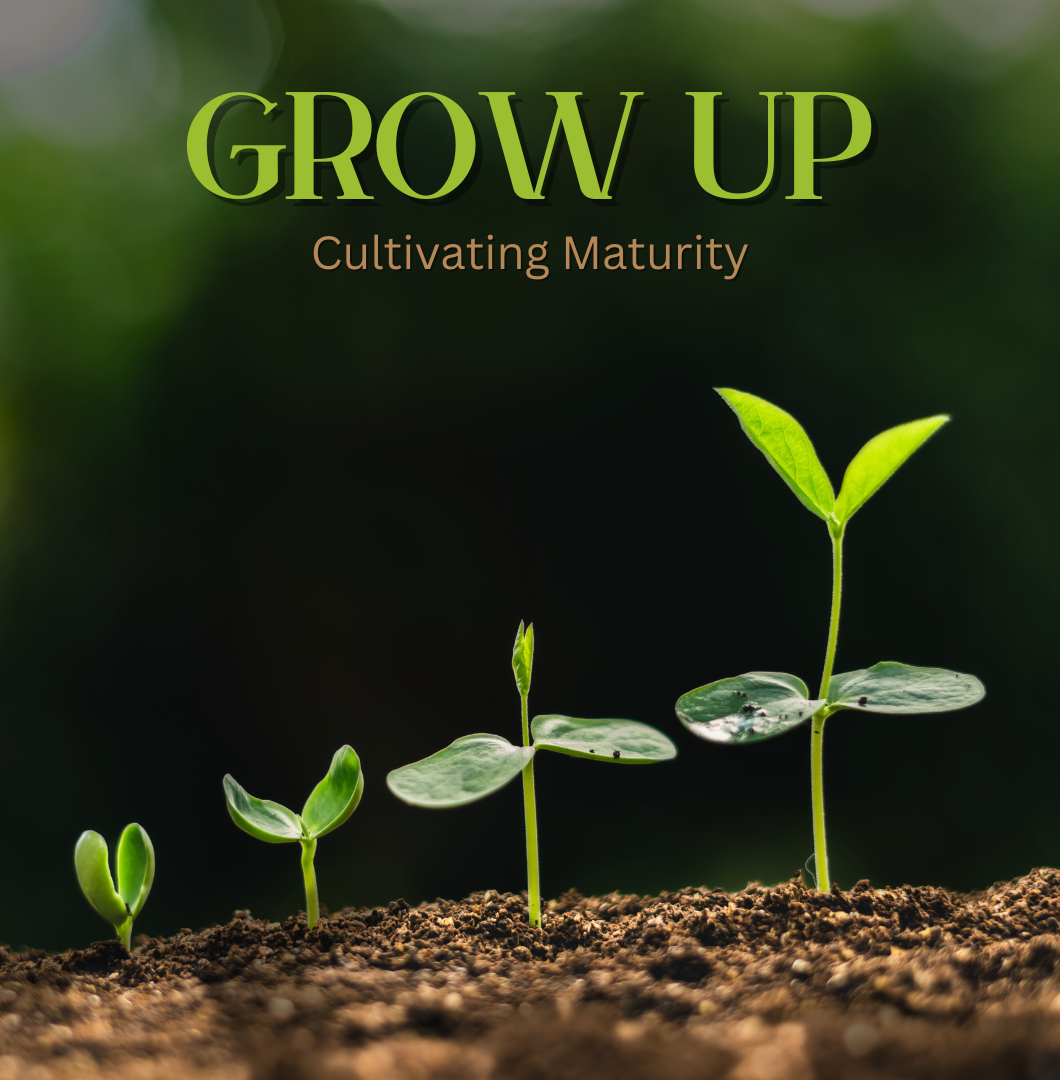Everyone grows old, but few grow up. While age is the measure of growing old, maturity is the measure of growing up. Let’s explore some immature patterns we see in children—and surprisingly, in adults too. By recognizing these patterns within yourself, you can begin cultivating maturity through awareness.
1. “If I can’t win, nobody can.”
Child Example: A child who is losing at a game decides to take their ball and go home or refuse to play because they can’t win.
Adult Example: An adult who feels threatened by someone else’s success may undermine them, discredit their work, or refuse to collaborate out of fear of not being the best or feeling left behind. They may project their own insecurities and try to disrupt the harmony instead of celebrating another’s success.
2. “I don’t need anyone. I can do it myself!”
Child Example: A child who refuses help when they clearly need it, out of pride or a desire for independence. They might try to build something, like a puzzle, and become frustrated when it doesn’t work.
Adult Example: An adult who rejects assistance or constructive feedback, insisting they can handle everything on their own. This behaviour often stems from pride or the fear of appearing weak or incompetent. They may refuse to ask for help, even when it’s clear they’re struggling, and end up feeling overwhelmed or burned out.
3. “You’re not the boss of me!”
Child Example: A child refuses to follow directions from an authority figure, like a parent or teacher, simply out of rebellion and a need to feel in control of their own actions.
Adult Example: An adult who refuses to cooperate with team efforts or collaborative decisions at work or in personal life because they need to be in control. This may manifest in a power struggle, where they resist input from others, even when it’s well-meaning, and create tension due to their stubbornness.
4. “I want it NOW!”
Child Example: A child having a tantrum in a store because they can’t get the toy they want immediately, unable to wait or understand the concept of delayed gratification.
Adult Example: An adult who seeks instant results or instant gratification, whether through overeating, shopping, or seeking immediate validation. They may lack the patience or maturity to embrace the process of growth, needing quick rewards rather than investing in the long-term effort required for real change.
5. “It’s not fair!”
Child Example: A child cries because they believe something isn’t fair—perhaps a sibling got more dessert or a different toy—and they demand things be made right in their favour.
Adult Example: An adult who has a victim mindset, constantly feeling that life is unfair and blaming others for their circumstances instead of taking responsibility. They may resent others’ success, constantly feel entitled, or complain about what’s not working in their life, rather than being accountable and responsible.
6. “You made me do it!”
Child Example: A child blames someone else for their actions, saying, “You made me hit him!” to avoid taking responsibility for their behaviour.
Adult Example: An adult who avoids accountability by blaming others for their choices. They might say, “You made me angry,” or “If you had done this, I wouldn’t have reacted that way.” This shows a lack of self-awareness and personal responsibility, relying on external factors to explain their actions.
7.”I’m not talking to you.”
Child Example: A child gives the silent treatment or refuses to talk to someone after an argument, trying to punish them or manipulate them into doing what they want.
Adult Example: An adult who withdraws emotionally or gives the silent treatment during conflict instead of engaging in constructive communication. This can be a sign of immature conflict resolution skills, where avoiding confrontation feels safer than having an open discussion.
8.”You’re not my friend anymore!”
Child Example: A child says something like, “You’re not my friend anymore” after a minor disagreement, because they don’t know how to handle conflict or hurt feelings.
Adult Example: An adult who cuts people off easily after small conflicts, severing relationships at the first sign of trouble rather than working through issues. This behaviour can come from an avoidant or fearful approach to intimacy and relationships, where vulnerability is avoided.
9.”I can’t help it, I was born this way.”
Child Example: A child who refuses to clean up their mess or take responsibility for their actions by saying, “I just don’t know how,” or “I’m always like this!”
Adult Example: An adult who uses past experiences or labels as excuses for not changing or growing. For example, they might say, “I can’t help it, I’m just stubborn,” or “I’ve always been this way,” avoiding taking responsibility for their own growth and stagnating in unhealthy habits or behaviours.
10.”I don’t care!”
Child Example: A child says, “I don’t care!” when they are told they need to do something they don’t want to do—like cleaning their room or taking a bath.
Adult Example: An adult who shuts down emotionally or expresses apathy toward responsibilities or relationships. They may dismiss important things with statements like, “I don’t care,” as a defense mechanism to avoid feeling vulnerable or addressing issues that require attention.
Being aware of these immature patterns is just the beginning. True growth requires conscious change through awareness and action. It’s time to grow up to your full potential.



